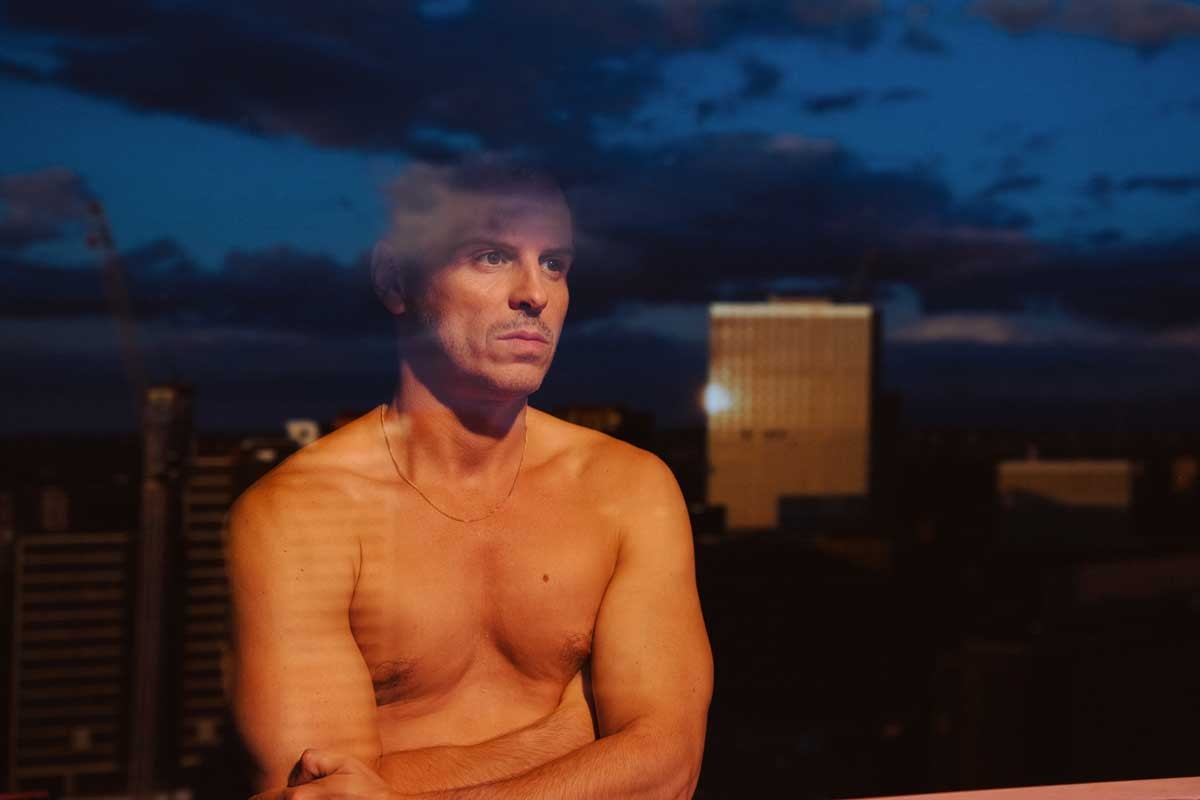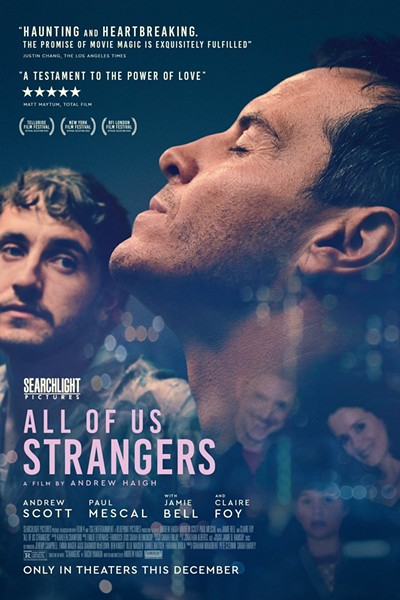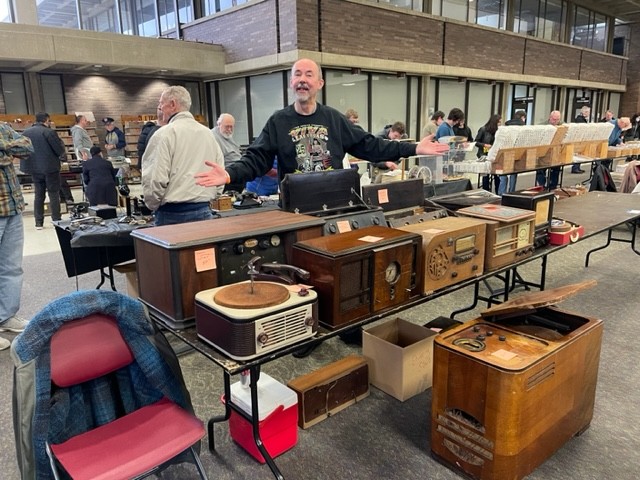In its entwining of a love story and a ghost story, Andrew Haigh’s All of Us Strangers is scarcely without precedent, with forebears including The Ghost and Mrs. Muir, Truly, Madly, Deeply, and, of course, Ghost.
Those films, however, involved romances between the living and the dead, with all of the inevitable complications. All of Us Strangers instead takes an oddly bifurcated approach, with the movie toggling between the developing relationship between Adam (Andrew Scott) and Harry (Paul Mescal) and Adam’s visits with the spirits of his long-dead parents (Claire Foy and Jamie Bell). Although the two plotlines eventually converge — with unexpectedly tragic results — All of Us Strangers often plays like two distinct films, with Adam serving as the thinnest of connecting threads.
A writer struggling with a semi-autobiographical screenplay, Adam lives in London but seldom ventures from the dark, enveloping cocoon of his apartment, which is situated in a recently opened tower that remains weirdly depopulated. In fact, the building’s only other resident appears to be Harry, who initially glimpses Adam framed in his upper-story window from the sidewalk below.
Having somehow intuited from that fleeting look that Adam is gay, Harry later shows up, outlandishly drunk if charmingly convivial, at the writer’s door. Reserved and wary, Adam gently rebuffs this first approach, but the next day, when a sober Harry returns to offer an apology, a mutual attraction becomes clear. The extroverted Harry even manages to coax Adam from his solitary, ascetic existence for a night out at a gay dance club, which helps loosen the tight bonds that constrain him. As the men’s connection strengthens, they share not just sex but real intimacies, with Adam opening up about a particularly shattering, life-altering event: his parents’ death from a car crash 30 years before.
For those familiar with Haigh’s filmography, this strand of All of Us Strangers’ story will evoke memories of the writer-director’s breakthrough work, Weekend (2011), which traces a brief but intense romance between two similarly contrasting men over the course of several days. Haigh essentially grafts a variant of Weekend’s narrative onto his new film’s source, Japanese writer Taichi Yamada’s Strangers (1987), which focused exclusively on ghostly doings with no romantic elements. Although the Adam-Harry plot avoids simply recapitulating Weekend — and the deepening relationship is deftly rendered by the filmmaker and the actors — All of Us Strangers on occasion comes perilously close to self-plagiarism.
Fortunately, the film’s parallel story — Adam’s discovery of Dad and Mum’s ghosts — proves not only more original but also far more compelling. In an effort to unblock his writing, Adam attempts to reconnect with his past by traveling to his childhood home in the suburbs. He succeeds beyond any realistic measure when he encounters his father, exactly the age he was before death, in the field behind their old residence. (In a disconcerting bit of misdirection, it at first appears as though the figure Adam sees at a distance is trying to hook up with him.) Adam accepts this supernatural occurrence with surprising equanimity and understandable joy, and after this initial visit, he embarks on regular journeys to his former home to talk with his ageless parents, who continue to “live” in surroundings entirely unchanged since their deaths.
Adam’s conversations with Mum and Dad, both singly and together, comprise the emotional core of All of Us Strangers. Although delighted to see their adult son — who’s now essentially their “age” — they also worry that Adam will end up lonely and unfulfilled when he reveals that he’s gay. Reflecting the attitudes extant at the time of their deaths, when AIDS was still an irrevocable death warrant, and unaware of subsequent societal changes, Mum and Dad (especially Mum) struggle to accept Adam’s sexual identity. Given Adam’s solitude at the film’s outset, his parents are perhaps right to fret over his romantic prospects, but his growing relationship with Harry offers the promise of a hopeful future, which he’s eager to share with Mum and Dad.
As Haigh has amply demonstrated in Weekend, 45 Years, and Lean on Pete, he’s particularly adept at revealing dialogue, and Adam’s hushed, intimate exchanges with Mum and Dad and with Harry have a heartbreaking quality that verges on but never tips over into sentimentality. At times, they’re almost unbearably moving. The film’s scenes with Mum and Dad are particularly effective (and affecting), and they also appear acutely personal: Haigh actually shot this material in his own childhood home, which he discovered had the same trapped-in-amber 1980s-era vibe as Adam’s parents. Haigh benefits from his extraordinary quartet of actors — Scott (Fleabag, Birdy), Mescal (Normal People, Aftersun), Foy (The Crown), and Bell (Billy Elliot) — who deliver naturalistic, utterly believable performances despite the film’s fantastical premise.
Given those enchanting qualities, it’s regrettable that the film so utterly botches the landing. Haigh certainly isn’t known for traditional happy endings — though both Weekend and Lean on Pete offer conclusions of at least qualified optimism — but All of Us Strangers is altogether punitive in its despairing finish. Saying more would require spoilers, but Haigh badly missteps, choosing to exit with an out-of-the-blue shock that feels entirely unearned and illogical. Especially for a filmmaker as generally accomplished and subtle as Haigh, the finale of All of Us Strangers feels like a crass betrayal.
Film Details
Subscribe to Metro Times newsletters.
Follow us: Google News | NewsBreak | Reddit | Instagram | Facebook | Twitter







